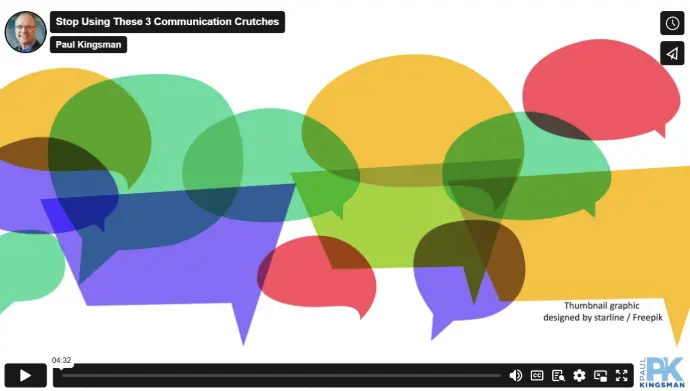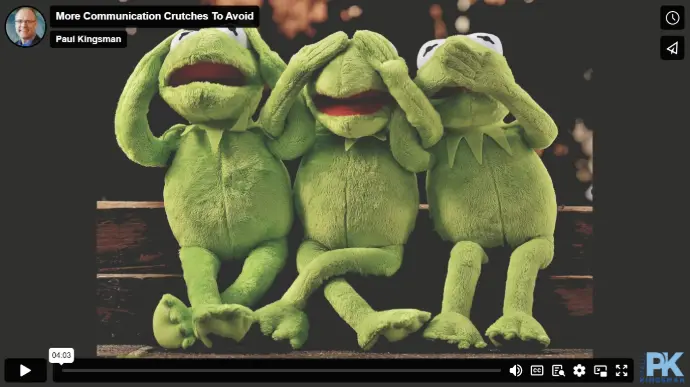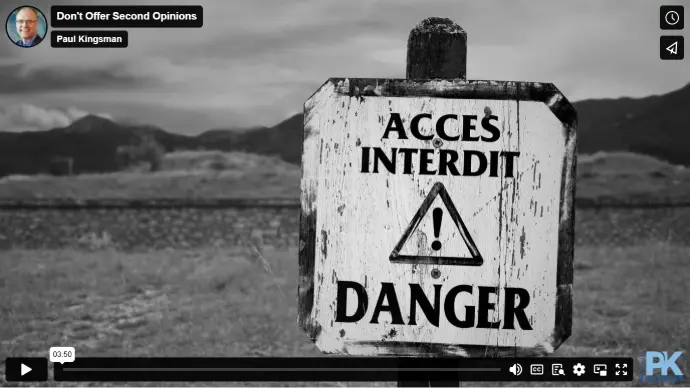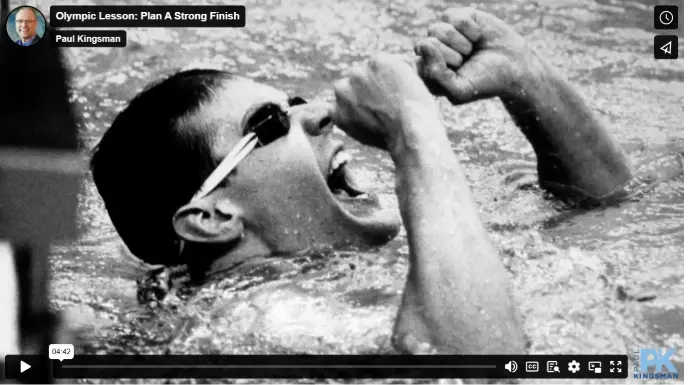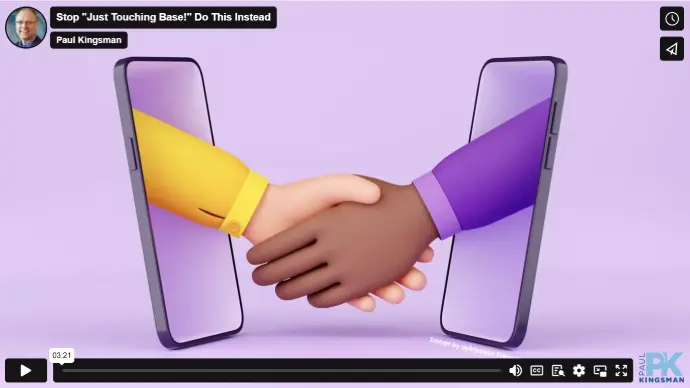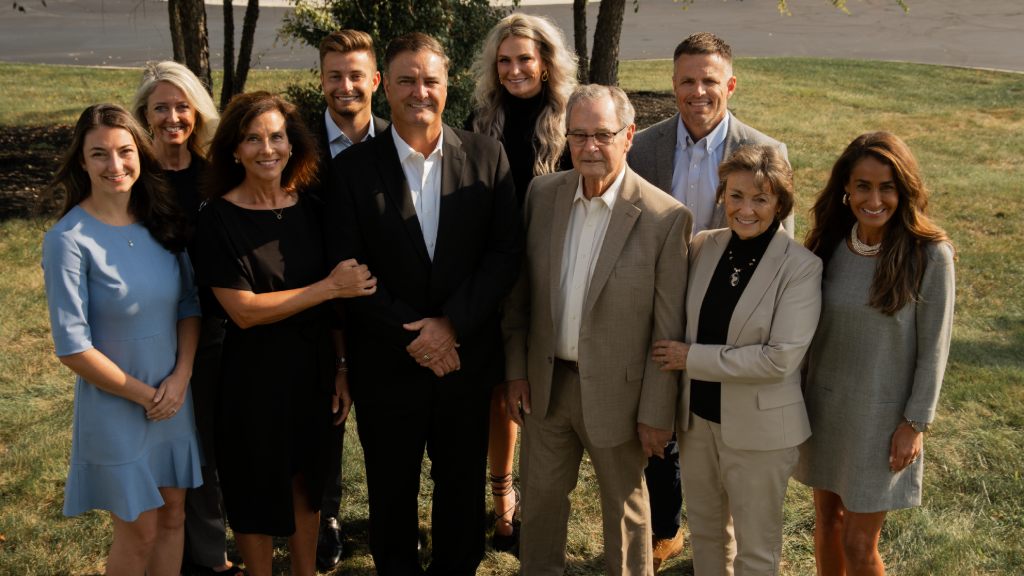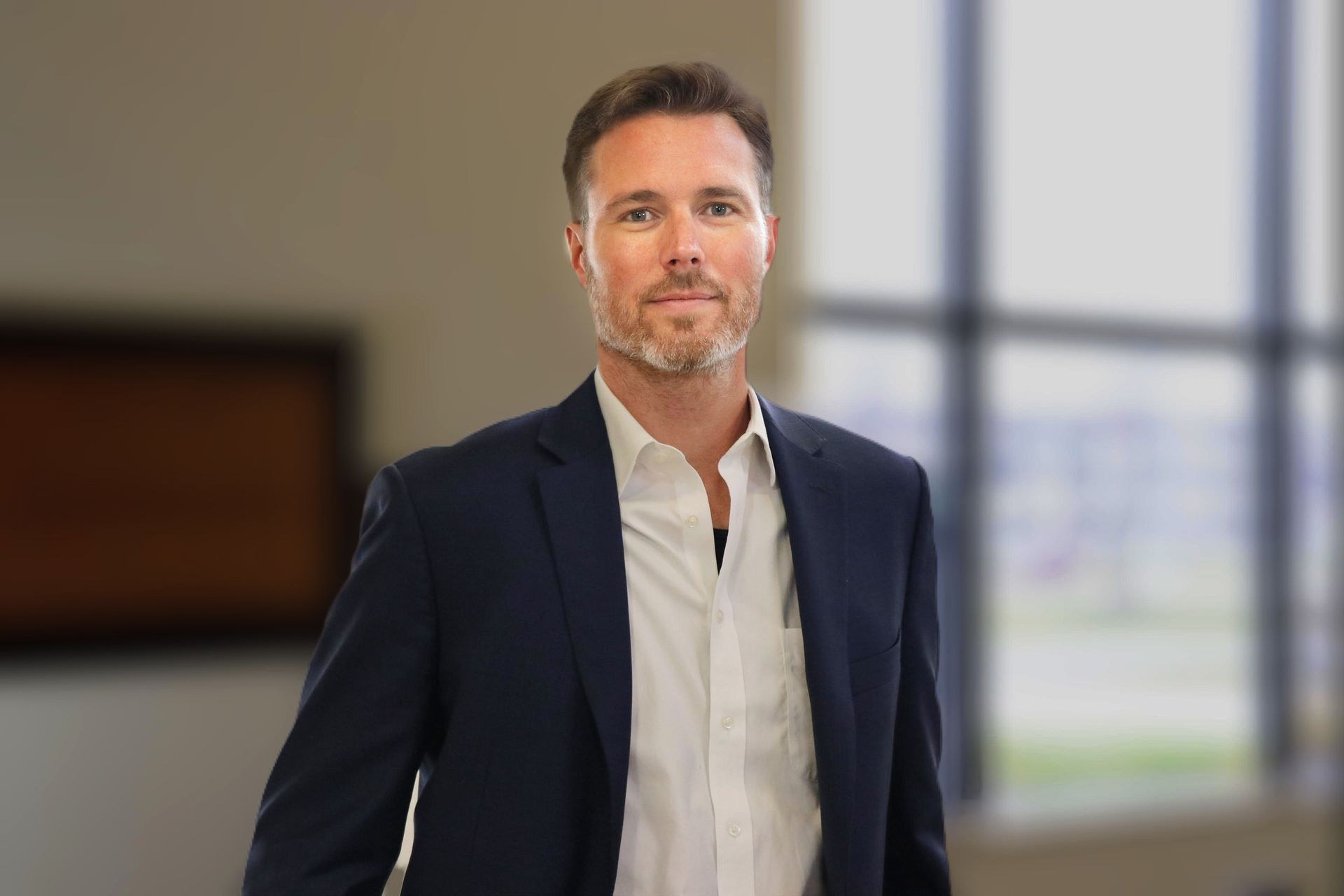Stop Using These 3 Communication Crutches (Distraction-Proof Advisor)
Paul Kingsman Live on Tuesday Aug 12th
Referral Language That Works In The Real World
Stop these three common communication habits now to help your words hit the mark.
- Slow down to recognize and break bad communication habits. Focus on your wording and don’t think this will happen automatically.
- Review and revise emails to ensure your main point is the primary point.
- Review your language after meetings. What did you say strongly? How could you communicate a point more succinctly next time? Be patient and don’t beat yourself up; changing habits takes time.
Transcript
You’ll stand out more in our sound-bite-saturated environment if you stop using these three communication crutches.
…
I’ve been speaking professionally for years and spoken in front of thousands and thousands of people, yet I never tire of watching other professional speakers present. You always learn something. Watching how these people move and, more importantly, listening to how they land words will help you become a far more effective communicator. In our sound-bite laden culture right now, it’s imperative you do this.
I love listening to speeches from John F. Kennedy, Martin Luther King, and Margaret Thatcher. You see them and hear them use economy of words because they know the words they’ve selected have to land. That means there’s no room for using superfluous, irrelevant, repetitive words. (See what I just did?) To have the greatest impact, you want to cut the clutter when you’re speaking.
When I speak to advisors, these are some of the crutches I hear regularly that need culling if you want to tighten up on your speaking.
“I’ll be honest…”
This is a classic one we hear a lot. We think we’re endearing ourselves to people when we say, “Look, I’ll be honest.” But the question that then can pop into the listener’s mind is, what have you been up until now? What have you been telling me? Was it truthful, or was it just top-of-mind thoughts you were having? Avoid using the crutch “I’ll be honest.”
“I’m just…”
Stop beginning emails with, “I just wanted to say, …,” “I’m just writing to say….” If you have nothing special to say but you still want to communicate with someone, let’s say because we’re midway through summer, simply say that: “Hi, John and Kathy. You were on my mind, and I wanted to see how summer is going.” Get away from the “I’m just writing,” or “I’m just leaving a message,” or “I’m just following up.” It’s weak; it diminishes the significance of what you are doing. With people’s weakened ability to focus these days, you want to make your words hit home.
“Right?”
When we finish our sentences with “right?”, looking for our listener to acknowledge that we must know what we’re talking about, it undermines our conviction, confidence and perceived competency. Imagine sitting across from your doctor and her saying, “I need you to take these green pills to help raise iron levels in your blood. Right?” You would think, “You’re the specialist. Why are you deferring to me by ending your sentences in a question?” Just state your point: “Financial planning is the cornerstone of everything we do here. It is what’s most important.” If you say, “Financial planning is the cornerstone of everything we do here. It’s what’s most important. Right?”, it makes you seem unsure of what you’re saying. You are the professional. Be confident in what you tell someone.
So if you want to do this most effectively,
- Focus on your wording. Don’t think this is going to happen automatically. Focus on the words that you want to say.
- Practice delivering these words. Get used to bringing them out in conversation so you get comfortable and confident with them. You can even use different tempos to make your point, using different speeds and intensities, including slowing down what you’re saying next to let that person mentally catch up with your words.
- Review. After your meetings, review your language. Teams have a huge advantage here, yet, so often, advisors ignore it. Ask each other, what did we say strongly? Ask your colleagues, “What did I miss the point on that I could have said more sharply?” If you are a solo advisor, sit down after each meeting and do your own deep dive. Ask yourself, “What would I have said differently? How could I have said that? What words would have described that point more succinctly?”
Use these ways to become a far more effective communicator, and you’re going to quickly see, your words will not only hit the mark, but you’re going to have people scrambling to want to get on board to work with you.
For more Distraction-Proof Advisor videos, click here.
CFD Companies is proud to be collaborating with Paul Kingsman.
About Paul Kingsman
Paul Kingsman, Ash Brokerage’s Practice Management Director, is a sought-after expert on how to be distraction-proof. Through his speaking, writing, and coaching, he teaches financial services professionals how to maintain focus and take practical daily steps to successfully grow their businesses and achieve outstanding long-term results. To find out more about Paul and how he can equip you or your team to achieve your own outstanding results, use the contact form below.
Use the form below to reach out to Paul.

*Paul is Registered with Ash Brokerage. Ash Brokerage is one of the largest insurance brokerages in the United States, with more than 400 employees nationwide.
About CFD Companies
CFD Companies is home to a fully independent Broker/Dealer and RIA that believe individuals are best served by a financial professional who possesses the freedom to implement personalized planning and investment strategies. The CFD Companies operate on the premise that an adviser’s Broker/Dealer and RIA should act as a partner and resource network, empowering adviser-client relationships through trust, innovative support and a shared commitment to mutual growth. Contact Us with any questions you have for us at CFD Companies.
While others operate in cliché, CFD operates in commitment. To learn more about that commitment and the future of your business in partnership with CFD, reach out to us below.
